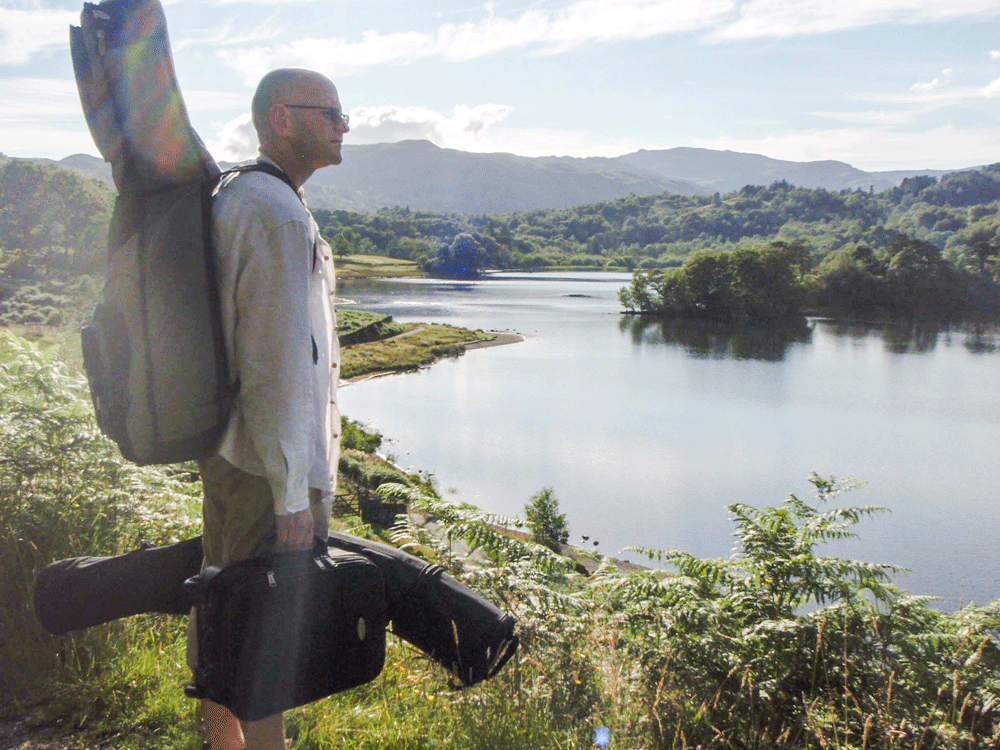Walking the Boundaries, Bridging the Gaps
/This week, I’ve been privileged to have been given the opportunity to attend the first international Community Music conference in North America, at Wilfrid Laurier university in Waterloo, Ontario. I’ve been presenting papers on my ‘Music In Three Dimensions’ model as well as preliminary findings of our research into the ‘portfolio’ musical careers that have emerged around the community of practice of Sage Gateshead (with Ian Paterson and Ryan Humphrey joining me via Skype). The level of engagement and discourse around Community Music has been deep and intense, and I’m sure I’m not the only delegate to be leaving feeling changed by the experience.
Conceived and engineered by the remarkable Professor Lee Willingham and his inspiring team of musicians, managers, students and volunteers, the conference has been a profound encounter, leaving me full of questions, doubts, confusion, sorrow and hope in equal measure. The conference was entitled ‘Walking the Boundaries, Bridging The Gaps’, highlighting the role that music might have in healing some of the damage wrought on the indigenous people of Canada over centuries of settlement. It’s a sensitive and complex issue etched into the lives, histories and countenances of many people that I’ve met here, and one that I really don’t feel qualified to discuss.
And yet, to be silent on the subject is to add my voice to the tacit consensus that this is a matter of history, something that happened in the past that has been resolved through the Canadian truth and reconciliation commission which reported a few years ago. It’s clear to me from my brief and intense exposure to the rawness and strength of feeling here that this is not just a painful scar from the past, and yet it is also more than the vivid wound still raw in the present. How the indigenous people of (what I’m used to calling) Canada find peace, and maintain their ancient relationship with the land in a world utterly transformed by the exploitation of it – and them - is a question that concerns all of us, and all our futures.
If music can help here, it can surely help anywhere. Hearing the stories and songs of the people here – indigenous and ‘settler’ alike – does give hope. Witnessing the power and solidarity of Mino Ode Kwewak N’gamowak (Goodhearted Women Singers) led by Kelly Laurila, and the fiery passion of Glenn Marais, leaves one in no doubt that music can speak where words alone would fail. Despite the damage wrought upon indigenous people in Canada, their singing voices bear testimony to that injustice, but also to the abiding strength which maintains their sacred connection to themselves, each other, and the land itself.
I’m reminded of Sinead O’Connor’s powerful lyrics about the Irish peace process, where she sang, ‘if there ever is going to be healing, first there has to remembering, and then grieving, so that there then can be forgiving. There has to be knowledge and understanding.’ That music may play some small part in the process, in how the people in this fractured and complex story find a resolution, is a call to action for musicians everywhere. What is learned from the musical journeys of those navigating truth and reconciliation processes across the globe give us profound insights into the kind of future we can dream of, where the sacred right to be human on this earth can be enacted in harmony with each other and the earth, in song and in fellowship.
